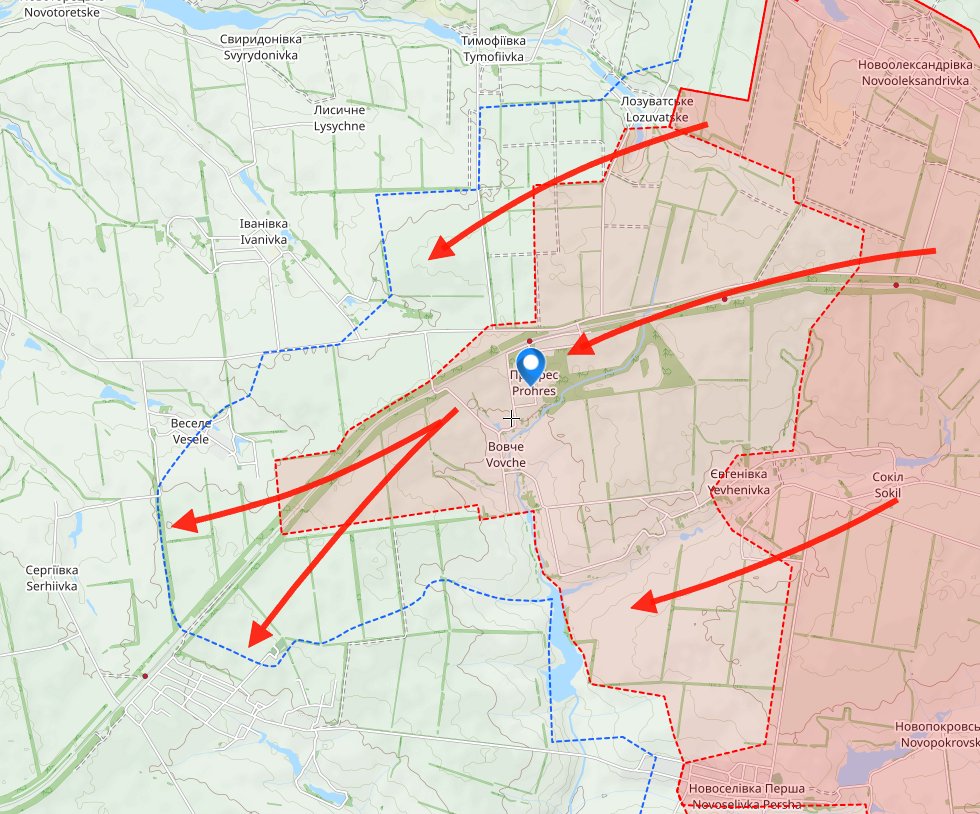Some thoughts on what's happening in Kursk.
The Russian border defences were most likely prepared to slow down and stop smaller-scale raids. Looking at the Russian telegram channels it seems that the Russian high command may have also ignored the Ukrainian buildup.
1/
The Russian border defences were most likely prepared to slow down and stop smaller-scale raids. Looking at the Russian telegram channels it seems that the Russian high command may have also ignored the Ukrainian buildup.
1/

As a result, Russia has to scramble the QRF's and local forces to respond to this. This gives the Ukrainians time and ability to joyride in the area to their souls content.
Reconnaisance groups are largely moving far ahead of the main force to sow more confusion.
2/
Reconnaisance groups are largely moving far ahead of the main force to sow more confusion.
2/
However, this means that we must be wary about our assessments of the extent of Ukrainian control in the Kursk region. Entering a village or driving through it does not consolidation make if it can't be held once the Russian reaction forces get to the AO.
3/
3/
The situation is going to look great on the map and in media, but I'm still not sure what the goal here is.
According to unreliable reports Ukraine has concentrated elements from 2-4 brigades in the area. These would be gravely needed in the east.
4/
According to unreliable reports Ukraine has concentrated elements from 2-4 brigades in the area. These would be gravely needed in the east.
4/
To offset the use of manpower and resources and help the crisis areas in the east, Ukraine would need to tie up 2-3 times as many Russian reserves from Donetsk.
That seems unlikely as Russia will most likely respond with local troops, as @Tatarigami_UA has said previously.
5/
That seems unlikely as Russia will most likely respond with local troops, as @Tatarigami_UA has said previously.
5/
It's also unclear how Ukraine is going to hold onto territories here longer term if it can't hold onto territories in the east, where it has had the time to prepare defences.
Ukraine also can't hit Russian concentrations with HIMARS when they are in Kursk.
6/
Ukraine also can't hit Russian concentrations with HIMARS when they are in Kursk.
6/
It's also not likely that the idea here was to attack the gas pipeline, as some have suggested.
You don't need to invade the area to hit the gas pipeline. As Andrew Perpetua has pointed out, the Ukrainians have hit the gas pipeline already.
7/
You don't need to invade the area to hit the gas pipeline. As Andrew Perpetua has pointed out, the Ukrainians have hit the gas pipeline already.
7/
https://x.com/AndrewPerpetua/status/1821167868425244964?t=qzEDm8sRx7vROYOqTSgdRA&s=19
Trying to hold onto areas in Kursk while also trying to desperately hang onto areas in the east is likely going to eat up more Ukrainian resources than just concentrating resources to holding the eastern frontline.
Also, these troops can't be used to rotate other units.
8/
Also, these troops can't be used to rotate other units.
8/
The short term benefits in terms of media optics and shifting attention away from the east are obvious, but if Ukraine attempts to hold onto ground, those short-term benefits might soon turn into long-term consequences.
9/
9/
Hopefully Ukraine has a clear idea about the goals of this operation, and hopefully those goals are also achieveable both politically and militarily.
As it stands right now I still feel like Ukraine is doing some high stakes gambling while holding a pretty bad hand.
10/10
As it stands right now I still feel like Ukraine is doing some high stakes gambling while holding a pretty bad hand.
10/10
• • •
Missing some Tweet in this thread? You can try to
force a refresh












